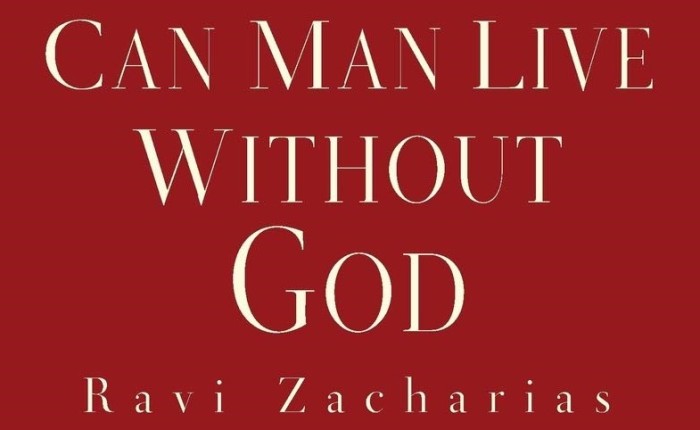Ravi Zacharias’s fall has been one of the most prominent evangelical scandals in recent times. After the release of the final report the RZIM board commissioned into his conduct, there can be little doubt that Zacharias, once one of the world’s most popular Christian apologists, was a liar, a hypocrite and a prolific sexual predator. The signs began emerging a few years ago, beginning with accusations of credential inflation, a sexting scandal in 2017 that was stridently denied, and finally, revelations that he had sexually abused numerous massage therapists. Ravi Zacharias was a fraud.
Where does that leave us regarding the many books Zacharias wrote or co-authored? He wrote dozens of highly popular Christian apologetics books, selling millions. This hasn’t stopped those promoting his books from taking swift action. HarperCollins Christian Publishing, the largest publisher of Christian books in the United States, are taking his books out of print. Australian Christian book shop Koorong Books is no longer offering books solely authored by Zacharias for sale. David Deane writes that he will no longer recommend Zacharias’s work to others.
Not everyone is convinced that Zacharias’s books should be discarded, though. John Stackhouse, Jr writes that there is much of value to be found in the writings of many Christians who were notorious sinners. He cites Karl Barth, well known for his long-term adulterous affair, and Martin Luther, amongst others. Clearly, a Christian writer’s fall from grace does not automatically invalidate all they have written. And we all know our own sins, and yet we expect God will continue to use us and our efforts. So if Zacharias’s books are valuable apologetics works in their own right, why not keep using them, just like we do the works of Barth and Luther?
I think one significant problem with using Zacharias’s books for now is the proximity to the timeline of his failings. There has been world-wide media coverage of his fall, disgracing the gospel, and to continue to recommend his books seems like we aren’t too concerned about his moral failures. It could even be seen as subtly defending him. There are dozens of victims of his sexual harassment, and they need to be followed up, apologised to, offered counselling, and compensated. Continuing to promote his books seems to demonstrate a lack of appreciation of the tremendous impact of Zacharias’s sin on others. By contrast, Barth died over 50 years ago, and so few, if any, affected by his sin remain alive today.
There’s also the issue of the relationship between apologetics and character. Zacharias has also shown himself to be a serial liar and a fraud, and that directly undermines trust in what he has written. As Nathan Campbell has said, apologetics is about persuasion, and Zacharias’s moral failures surely render his arguments less persuasive once someone learns of them. Ironically, Zacharias condemns himself when he writes: ‘I have little doubt that the single greatest obstacle to the impact of the gospel has not been its inability to provide answers, but the failure on our part to live it out …the way one’s life is lived out will determine the impact. There are few obstacles to faith as serious as expounding the unlived life …This call to a life reflecting the person of Christ is the ultimate calling upon the apologist. The skeptic is not slow to notice when there is a disparity, and because of that, may question the whole gospel in its supernatural claim’.1
Perhaps the best approach is to let time do its work in salvaging what’s of worth in Zacharias’s writings. If we lay his books aside for at least a few years, we might get a better perspective on what has value. None of what he has written seems to qualify as solid scholarship, as opposed to the writings of Barth and Luther. It’s popular apologetics, and perhaps it won’t be missed. John Stackhouse Jr certainly wasn’t impressed by his work. There are many others writing in this space.
Of course, if you own some of Zacharias’s books, it might be that you find them personally helpful for their content, and so you might have good reason to keep them. I threw away my Lance Armstrong books when he proved to be a drug cheat, but that made his entire life story a fraud. With the exception of his autobiography, Zacharias’s books aren’t about his life story, they are about apologetics, and so there’s bound to be some useful material we can draw upon if we own his books. Really, this post should ask if we should keep recommending his books to others, not if we should throw them away.
Finally, let’s keep in mind that there may be much more to emerge regarding the Zacharias story – for example, we don’t know the full story behind his frequent solo visits to Asia, and I’m not looking forward to finding out. His fall might have further to go.
1In an article called The Apologetic of the Apologist, which appears to have been removed from the RZIM site but which has been cached by Google here.
